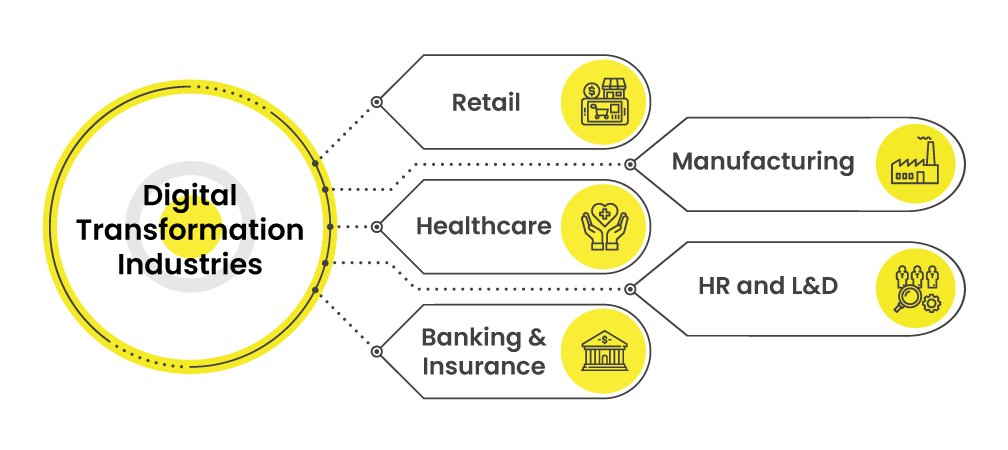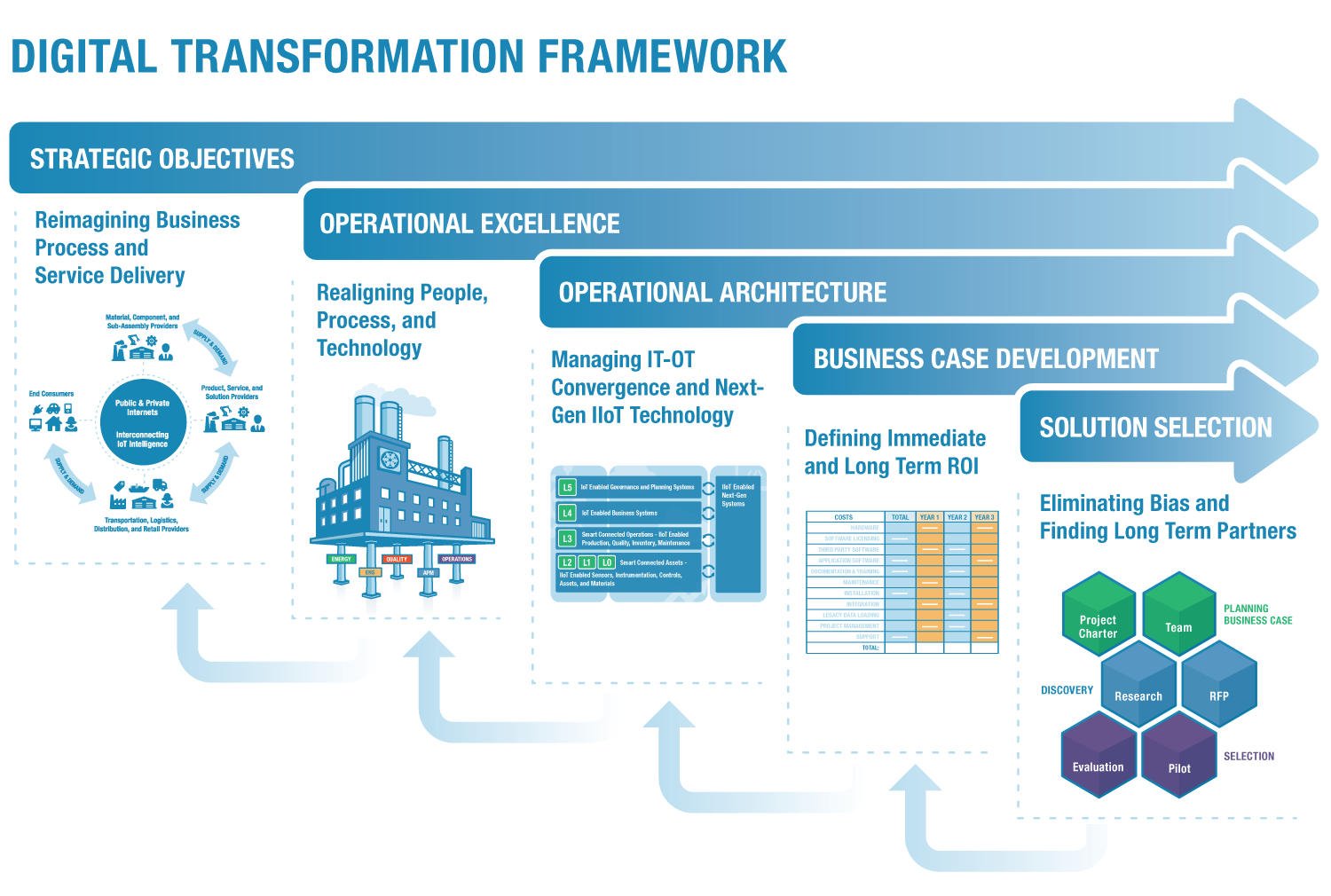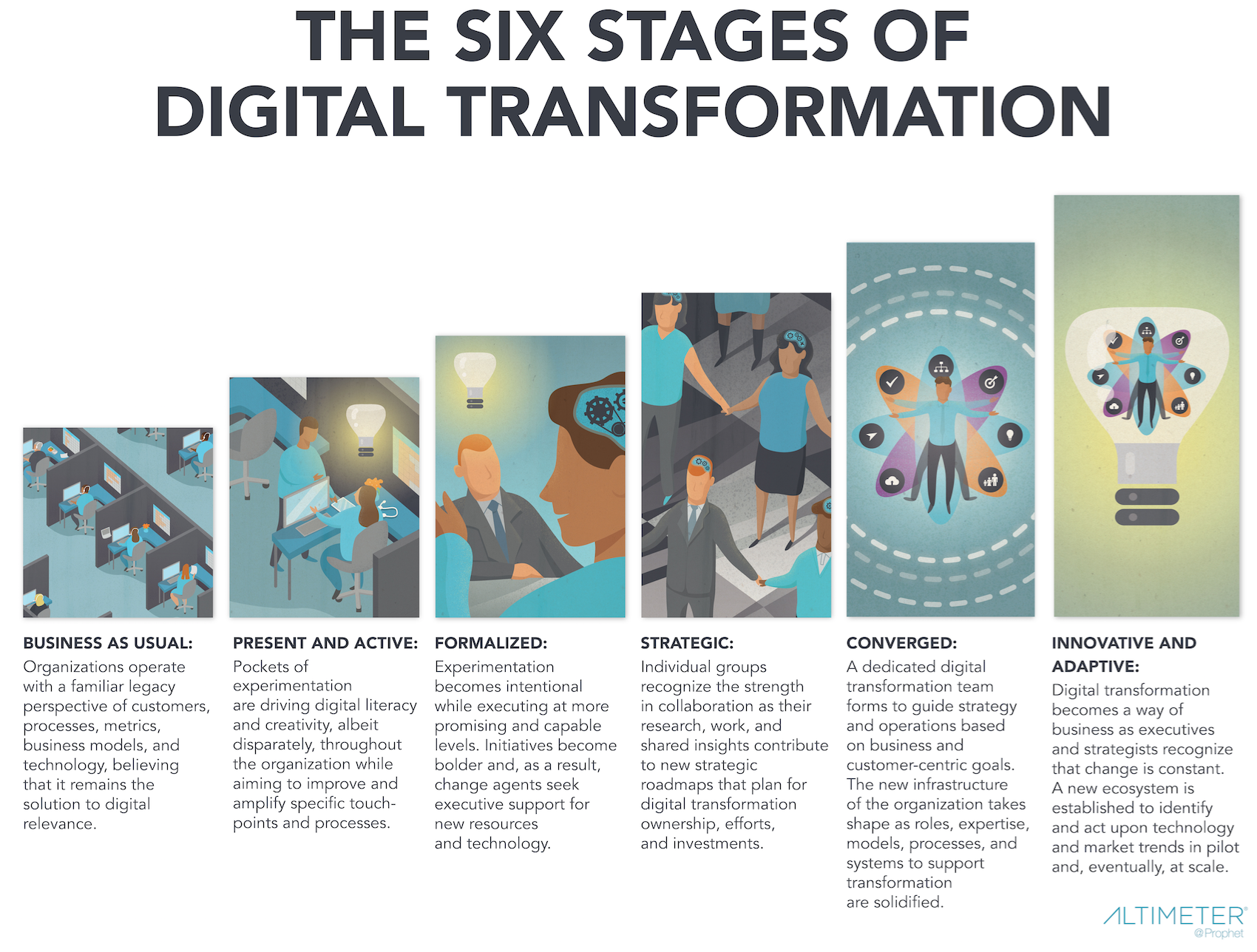Industry-Specific Digital Transformation: Unlocking Tailored Innovation

Digital transformation is reshaping industries globally, enabling businesses to thrive in a competitive and rapidly evolving marketplace. While the concept of digital transformation is broad, its impact varies across industries, requiring tailored strategies to address unique challenges and leverage specific opportunities.
In this article, we’ll explore the nuances of industry-specific digital transformation, highlighting its importance, key benefits, and actionable strategies for success.
What is Industry-Specific Digital Transformation?
Digital transformation is the integration of digital technologies into all areas of a business, fundamentally changing how organizations operate and deliver value to customers. When applied to specific industries, it:
- Addresses unique needs within a sector.
- Leverages specialized tools and platforms.
- Enhances sector-specific workflows and processes.
For instance, while retailers focus on improving customer experience through e-commerce and personalization, healthcare providers prioritize data security and patient care through digital health solutions.
The Importance of Tailored Digital Transformation
1. One Size Does Not Fit All
Each industry has its unique challenges, regulations, and customer expectations. Tailored digital transformation ensures businesses adopt technologies that resonate with their specific needs.
2. Competitive Advantage
By embracing sector-specific innovations, businesses can differentiate themselves in crowded markets.
3. Enhanced ROI
Investing in solutions designed for a particular industry maximizes the return on investment, ensuring efficient resource allocation.
Learn More: Understanding digital strategies for businesses.
Benefits of Industry-Specific Digital Transformation

1. Improved Efficiency
Automating repetitive tasks and streamlining workflows reduce costs and save time.
2. Better Customer Experience
With tailored solutions, businesses can offer personalized and seamless experiences to their customers.
3. Agility and Resilience
Digital tools enable businesses to adapt quickly to market changes and disruptions, ensuring continuity and resilience.
4. Compliance and Security
Industries like finance and healthcare benefit from sector-specific regulations and secure systems that meet compliance standards.
“The future belongs to businesses that can adapt and innovate in alignment with industry demands.”
Digital Transformation Across Key Industries
1. Retail
The retail industry has been one of the biggest beneficiaries of digital transformation, with innovations like:
– E-commerce platforms for online shopping.
– AI-driven personalization to enhance customer experiences.
– Inventory management systems powered by IoT.
2. Healthcare
Digital transformation in healthcare focuses on improving patient outcomes through:
– Telemedicine and remote consultations.
– Electronic Health Records (EHR) for seamless patient data management.
– AI-based diagnostics to identify health issues early.
Explore More: Healthcare technology advancements.
3. Manufacturing
The manufacturing sector leverages Industry 4.0 principles, integrating technologies such as:
– IoT-enabled smart factories.
– Predictive maintenance using AI and machine learning.
– 3D printing for rapid prototyping and production.
4. Financial Services
Financial institutions adopt digital transformation to enhance efficiency and security through:
– Blockchain technology for transparent transactions.
– Robo-advisors for personalized investment advice.
– Mobile banking apps for seamless customer service.
5. Education
The education sector embraces technology to facilitate learning, including:
– E-learning platforms like Coursera and Udemy.
– Virtual and augmented reality for immersive experiences.
– AI-driven analytics to track student progress.

Key Steps for Implementing Digital Transformation
1. Assess Industry Needs
- Identify pain points and inefficiencies specific to your sector.
- Analyze competitors’ digital strategies.
2. Develop a Roadmap
- Define clear objectives and KPIs.
- Prioritize initiatives based on potential ROI.
3. Choose the Right Technology
Adopt solutions that align with your industry requirements, such as:
– AI and ML tools for analytics.
– Cloud platforms for scalability.
– Secure payment gateways in retail and finance.
4. Train Your Workforce
Ensure employees are equipped with the skills to work with new tools and processes.
5. Monitor Progress
Use analytics to track performance and make adjustments as needed.
Related Reading: Best practices for digital adoption.
Challenges in Industry-Specific Digital Transformation
Despite its advantages, businesses face several challenges when adopting digital transformation:
1. Resistance to Change
Employees may hesitate to adopt new technologies.
Solution: Conduct training programs and highlight the benefits of digital tools.
2. Budget Constraints
Implementing industry-specific solutions can be expensive.
Solution: Start with high-impact, low-cost initiatives and scale gradually.
3. Data Security Concerns
Sensitive information, especially in healthcare and finance, requires robust security measures.
Solution: Invest in cybersecurity solutions and ensure compliance with industry standards.
Emerging Trends in Industry-Specific Digital Transformation

1. AI and Machine Learning
Industries are leveraging AI to automate processes, enhance decision-making, and improve customer experiences.
2. Internet of Things (IoT)
From smart devices in homes to IoT-enabled machinery in factories, this technology is transforming operations across sectors.
3. Blockchain Technology
Blockchain is gaining traction in finance, healthcare, and supply chain management for its transparency and security features.
4. Sustainability and Green Tech
Digital transformation initiatives are increasingly focusing on sustainable practices, reducing environmental impact.
FAQs on Industry-Specific Digital Transformation
Q1: What industries benefit most from digital transformation?
A: All industries benefit, but sectors like healthcare, finance, manufacturing, and retail are witnessing significant impacts.
Q2: How long does digital transformation take?
A: The timeline depends on the scale of transformation, industry, and organizational readiness. It can range from months to years.
Q3: What are the biggest challenges in digital transformation?
A: Resistance to change, budget constraints, and ensuring data security are common challenges.
Q4: Can small businesses adopt digital transformation?
A: Yes, small businesses can leverage cost-effective digital tools and strategies to compete effectively in their markets.
Conclusion
Industry-specific digital transformation is no longer optional—it’s essential for businesses looking to stay competitive and relevant. By adopting tailored solutions, companies can enhance efficiency, improve customer experiences, and achieve long-term growth.
Take the first step today to revolutionize your industry and embrace the opportunities of the digital age!

